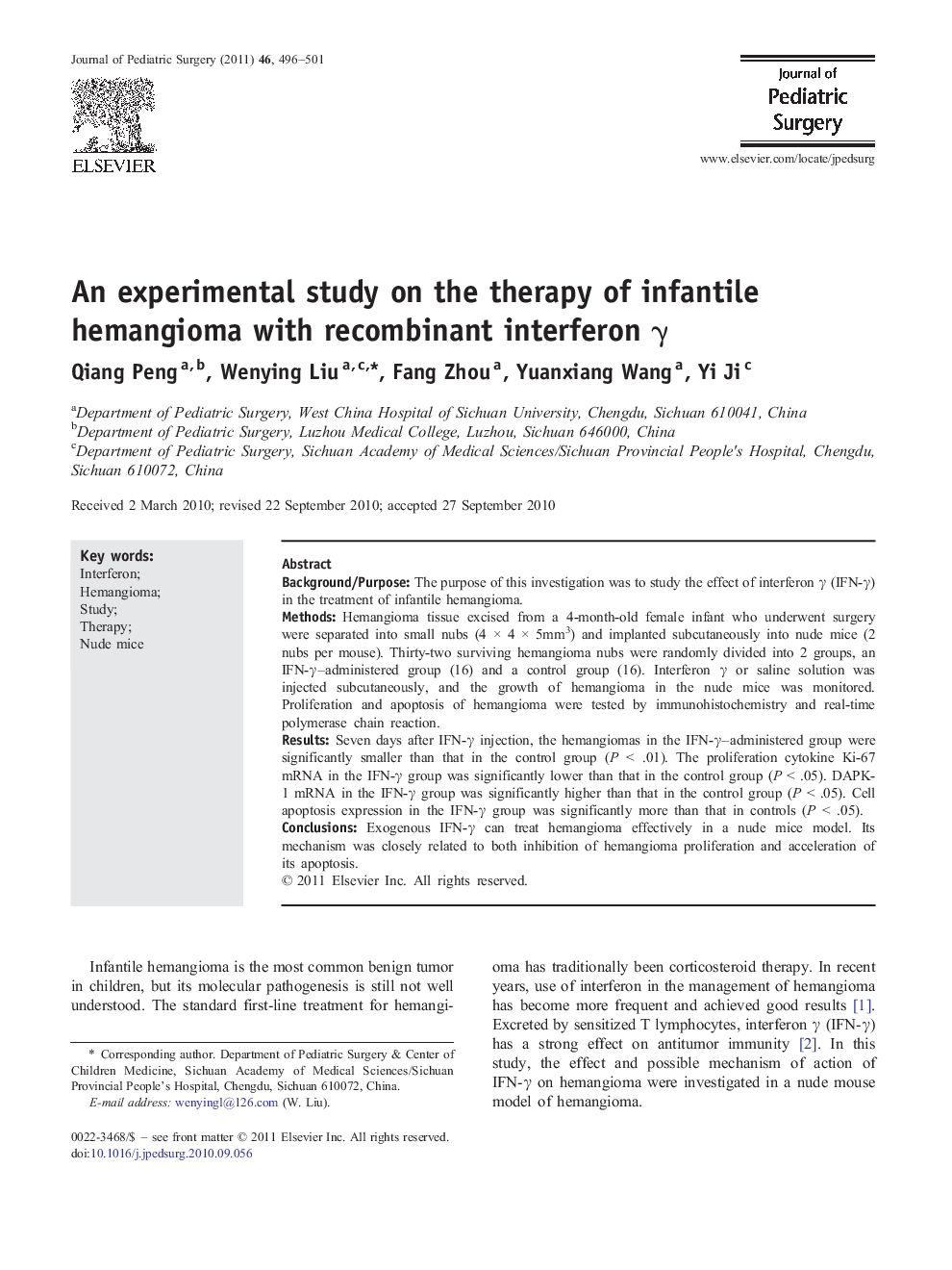| Article ID | Journal | Published Year | Pages | File Type |
|---|---|---|---|---|
| 6218049 | Journal of Pediatric Surgery | 2011 | 6 Pages |
Background/PurposeThe purpose of this investigation was to study the effect of interferon γ (IFN-γ) in the treatment of infantile hemangioma.MethodsHemangioma tissue excised from a 4-month-old female infant who underwent surgery were separated into small nubs (4 à 4 à 5mm3) and implanted subcutaneously into nude mice (2 nubs per mouse). Thirty-two surviving hemangioma nubs were randomly divided into 2 groups, an IFN-γ-administered group (16) and a control group (16). Interferon γ or saline solution was injected subcutaneously, and the growth of hemangioma in the nude mice was monitored. Proliferation and apoptosis of hemangioma were tested by immunohistochemistry and real-time polymerase chain reaction.ResultsSeven days after IFN-γ injection, the hemangiomas in the IFN-γ-administered group were significantly smaller than that in the control group (P < .01). The proliferation cytokine Ki-67 mRNA in the IFN-γ group was significantly lower than that in the control group (P < .05). DAPK-1 mRNA in the IFN-γ group was significantly higher than that in the control group (P < .05). Cell apoptosis expression in the IFN-γ group was significantly more than that in controls (P < .05).ConclusionsExogenous IFN-γ can treat hemangioma effectively in a nude mice model. Its mechanism was closely related to both inhibition of hemangioma proliferation and acceleration of its apoptosis.
